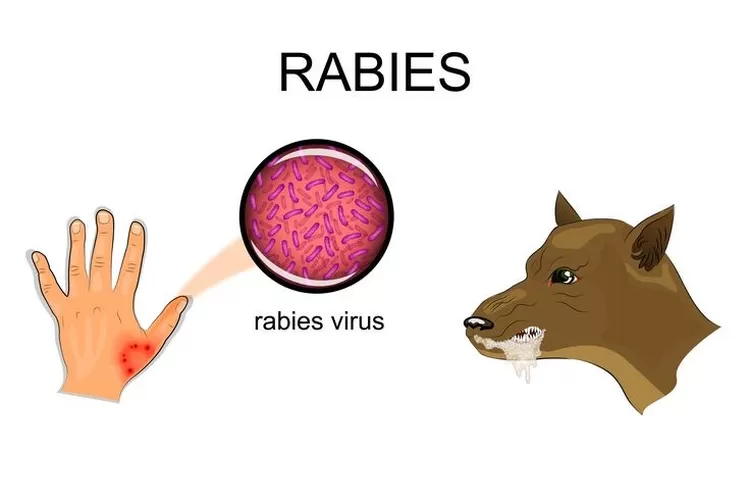RABIES
Introduction: Rabies, a preventable viral disease, affects both mammals and humans. It is primarily transmitted through the saliva of infected animals via bites, leading to the infection of the central nervous system and ultimately resulting in brain disease and death.
Causes: Rabies is caused by the rabies virus, a member of the Lyssavirus genus. It's transmitted through:
-
Animal Bites: Commonly via bites from infected animals, like dogs, bats, raccoons, or foxes.
-
Scratches/Wounds: Entry through open wounds, mucous membranes, or damaged skin in contact with infected animal saliva.
Symptoms: Rabies manifests in two stages:
-
Prodromal Stage: Lasting a few days with fever, headache, malaise, and pain/itching at the bite site.
-
Acute Neurological Stage: Characterized by severe symptoms:
-
Hydrophobia: Fear of water, painful throat spasms, and difficulty swallowing.
-
Confusion/Agitation: Disorientation, anxiety.
-
Hallucinations: Visual/auditory hallucinations.
-
Paralysis: Rapid muscle weakness.
-
Coma: Often fatal.
-
Diagnosis: Rabies is currently diagnosed through microscopic brain examination, although new techniques using skin or blood samples are in development but not yet widely used.
Human Exposure: When bitten by an animal suspected of having rabies, the animal is quarantined or observed for 10 days. Quarantine requirements depend on factors like the animal's vaccination status and community regulations. Human bite victims receive post-exposure vaccinations and antibody injections, with immediate wound washing and medical attention advised for all potential rabies exposures.
Prevention: Effective rabies prevention involves:
-
Vaccination: Pre-exposure (for high-risk individuals) and post-exposure vaccines exist. Administer post-exposure vaccination after potential rabies exposure, like bites.
-
Avoidance: Stay away from high-risk animals, especially those acting strangely.
-
Animal Vaccination: Regularly vaccinate pets and domestic animals.
-
Wound Care: If bitten/scratched, clean the wound thoroughly with soap and water, seek immediate medical attention.
-
Education: Raise awareness through public campaigns about rabies risks and vaccination importance.
